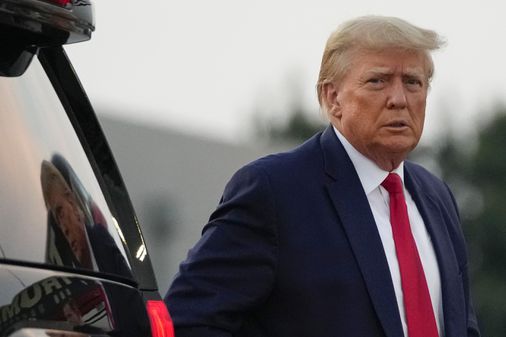“I will be asking the attorney general’s office for their input,” Secretary of State David Scanlan told the Globe. “And ultimately whatever is decided is probably going to require some judicial input.”
A debate among constitutional scholars over former president Donald Trump’s eligibility for the 2024 presidential race has reverberated through the public consciousness in recent weeks and reached the ears of New Hampshire’s top election official.
Secretary of State David Scanlan, who will oversee the first-in-the-nation presidential primary in just five months, said he’s received several letters lately that urge him to take action based on a legal theory that claims the Constitution empowers him to block Trump from the ballot.
Scanlan, a Republican, said he’s listening and will seek legal advice to ensure that his team thoroughly understands the arguments at play.


